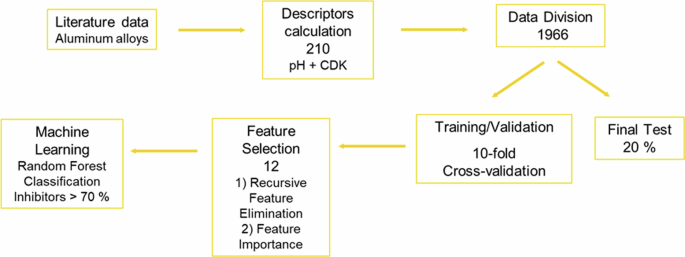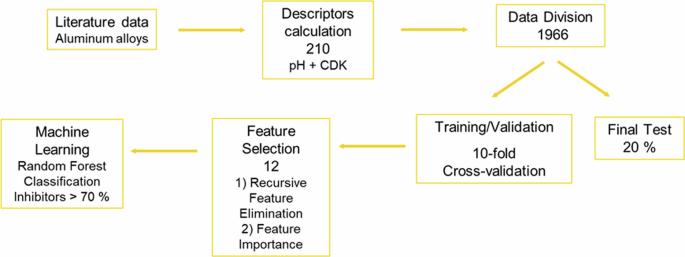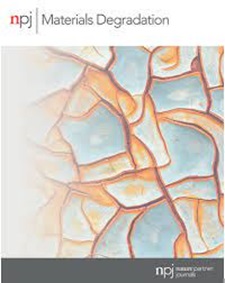DATACORTECH: artificial intelligence platform for the virtual screen of aluminum corrosion inhibitors
IF 7.6
2区 材料科学
Q1 MATERIALS SCIENCE, MULTIDISCIPLINARY
引用次数: 0
Abstract
The machine learning framework reported herein can greatly accelerate the development of more effective and sustainable corrosion inhibitors for aluminum alloys, which still rely mostly on the experience of corrosion scientists, and trial and error laboratory testing. It can be used to design inhibitors for specific applications, which can be immobilized into nanocontainers or included directly into coatings in the search for less hazardous corrosion protective technologies. Therefore, a machine learning (ML) classification model that allows to identify promising compounds ( > 70% inhibitor efficiency) among less promising ones, and an online application ( https://datacor.shinyapps.io/datacortech/ ) were developed for the virtual screen (simulation) of potential inhibitors for aluminum alloys, capable of considering the molecular structure and the influence of pH as an input.


DATACORTECH:用于虚拟筛选铝腐蚀抑制剂的人工智能平台
本文所报告的机器学习框架可大大加快更有效、更可持续的铝合金缓蚀剂的开发速度,而这些缓蚀剂的开发仍主要依赖于腐蚀科学家的经验以及实验室测试的反复试验。它可用于为特定应用设计抑制剂,这些抑制剂可固定在纳米容器中或直接加入涂层中,以寻求危害较小的腐蚀防护技术。因此,我们开发了一个机器学习(ML)分类模型,该模型可以从前景较差的化合物中识别出有潜力的化合物(抑制剂效率为 70%),并开发了一个在线应用程序(https://datacor.shinyapps.io/datacortech/),用于虚拟筛选(模拟)潜在的铝合金抑制剂,该应用程序可以将分子结构和 pH 值的影响作为输入。
本文章由计算机程序翻译,如有差异,请以英文原文为准。
求助全文
约1分钟内获得全文
求助全文
来源期刊

npj Materials Degradation
MATERIALS SCIENCE, MULTIDISCIPLINARY-
CiteScore
7.80
自引率
7.80%
发文量
86
审稿时长
6 weeks
期刊介绍:
npj Materials Degradation considers basic and applied research that explores all aspects of the degradation of metallic and non-metallic materials. The journal broadly defines ‘materials degradation’ as a reduction in the ability of a material to perform its task in-service as a result of environmental exposure.
The journal covers a broad range of topics including but not limited to:
-Degradation of metals, glasses, minerals, polymers, ceramics, cements and composites in natural and engineered environments, as a result of various stimuli
-Computational and experimental studies of degradation mechanisms and kinetics
-Characterization of degradation by traditional and emerging techniques
-New approaches and technologies for enhancing resistance to degradation
-Inspection and monitoring techniques for materials in-service, such as sensing technologies
 求助内容:
求助内容: 应助结果提醒方式:
应助结果提醒方式:


